In honor of the release of Captain America: Civil War, We Minored in Film’s Julianne Ramsey will examine the Marvel Cinematic Universe as it stands.
Day 8: Thor: The Dark World (2013)
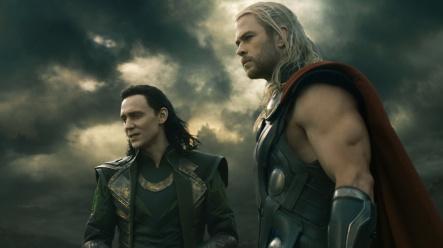
Released in 2013, Thor: The Dark World was seen as a Marvel misstep, perhaps the lowest point in their cinematic universe. It’s not an entirely unfair accusation, although I think The Incredible Hulk remains their nadir. Like the Frost Giants before them, the Dark Elves, led by Malekith (Christopher Eccleston, given nothing to do), are less fully realized villains than proof the film used its special effects budget. The Aether, a wispy, floaty substance that inhabits Thor’s returning love interest Jane (Natalie Portman), really isn’t defined enough to be a threat. The film tells us Malekith will use the Aether to destroy the Nine Realms, but there’s no real explanation as to how or why. The romance between Thor and Jane that worked well in the first film feels underserved in a narrative more fixated on wormholes and the defying of physics. They kill off a major character: Thor’s mother, Frigga (Rene Russo, who finally receives some character development so of course she’s going to die), and much of the film’s later actions stem from Odin’s (Anthony Hopkins) grief-clouded actions.
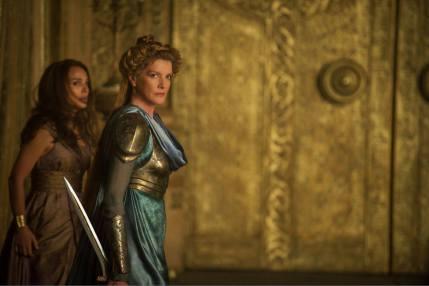
If we cared more, it would probably be effective, but the film’s too busy zipping along to pause for an examination on grief’s effects. There are multiple reasons not to recommend Thor: The Dark World. It’s kind of a mess.
The film also serves as a wasted opportunity. It’s a shame the film wasted an opportunity to a reverse of the fish-out-of-water storyline that worked so well in Thor, since we have Jane now taken out of her element and relocated to Asgard.
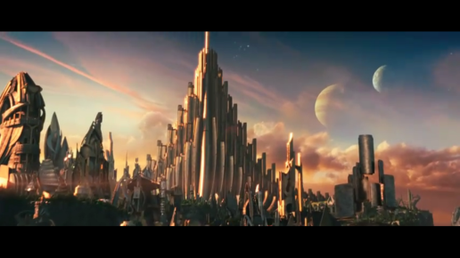
The film plays with concept for a while but grows weary of it and just throws a monster right into the middle of the comedy of manners that was set to unfold. For much of its running time, it’s a film of characters making somber, formal, stilted declarations, sometime softly and sometimes loudly, but always unnaturally. With this much banality on screen, a sparky, charismatic villain would be really refreshing. It could breathe life into a film that sometime feels more akin to watching wax figures come to life. Unfortunately, Malekith is not that villain, and it’s not as though Christopher Eccleston couldn’t be a menacing, compelling presence.
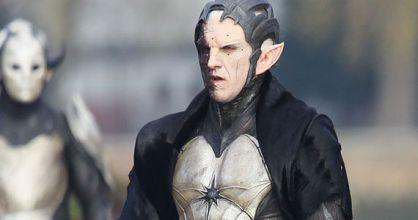
He’s a good actor, and if he had anything to do, he could be an effective antagonist. Mostly, he just stands there and says bland, meant to be menacing, declarations.
Yet, I have a real soft spot for the film. The film’s loopy charm that makes me willing to look past its massive shortcomings. It’s a bit awkward that Erik Selvig’s mental trauma (stemming from having his mind violated in The Avengers) is played for laughs, but Stellan Skarsgård, blustering and pants-free, has a lot of fun with the character’s eccentric approach to madness.
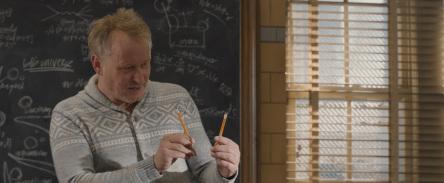
He’s given a fair bit to do, and he makes the most of it. Chris O’Dowd milks a few laughs from his two scenes, and his inherent likability always make him a welcome screen presence. Beyond that, though, I have a massive weakness for the way the film depicts inter-dimensional wormholes, with characters and objects slipping away from one area only to materialize in another. The fight scenes remain fun and inventive. It manages to be entertaining in spite of the narrative’s best efforts to derail it.
Let’s be honest, though. The film works because it allows Loki (Tom Hiddleston) to share the lead spotlight. Since the battles of Thor and The Avengers, Thor (Chris Hemsworth) has grown from an arrogant, impulsive brawler to the noble, righteous god worthy of his mighty hammer. Great for the people of Asgard, less thrilling for the cinema audience. Thor’s cockiness distinguished him from the crowd of upright, fighting supermen. He feels less distinct. Despite Hemsworth’s best efforts to infuse him with some spark, and Hemsworth is a likable performer, Thor just feels less compelling here. However, once he rejoins with Loki, his adopted brother he’d love to trust but can’t, the film the film kicks into high gear. Hiddleston, with his flawless bone structure, lithe frame, and near-balletic body movements, imbues Loki with a sense of fun not shared by any other character on Asgard. He gets to hang out on the sidelines, insulting Thor and his cohorts, picking apart Thor’s schemes, and keeping the audience guessing as to which direction his loyalties will ultimately lie. When he grins his mischievous grin, it’s nigh impossible not to be charmed.
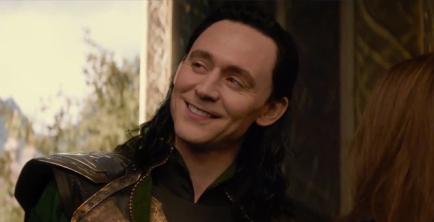
It’s obvious he had affection for his mother, but Thor and Odin are more ambiguous propositions. He regards them with a near equal mix of envy and loathing. Loki ends outshining everyone sharing his screen time, but he also elevates the character of Thor. When Loki’s around Thor becomes compelling, because there are actual complicated, conflicted emotions between the two of them.
The primary reason Thor’s relationship with Jane feels underserved has more to do with the fact that Thor: The Dark World realizes the film’s true romance rests between Thor and Loki than any actual flaw with Thor and Jane as a couple. Unfortunately for Jane, there’s more spark and chemistry between Hemsworth & Hiddleston than Hemsworth and Portman.
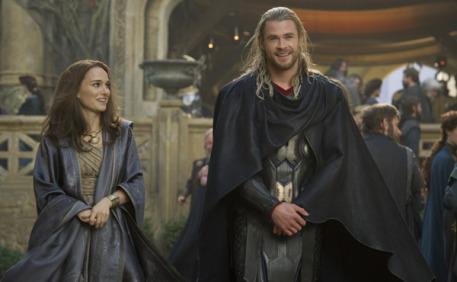
Loki’s death scene, which even upon first viewing I knew to be a fake-out because you don’t kill your golden goose, is more moving than Frigga’s death, and that death actually sticks.
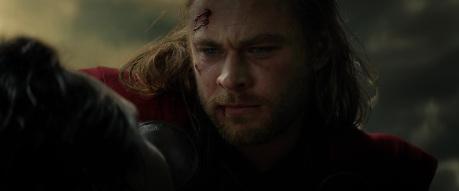
He makes Thor: The Dark World the film you want it to be, because the brotherly relationship gives the film its emotional core.
Directed with adequacy by Game of Thrones alum Alan Taylor, the action sequences are well-staged and actually coherent, if a touch unremarkable. He also manages to tone down the near headache-inducing garishness that was the Asgard of Kenneth Branagh’s film. The more muted color palette gives the film’s other-worldly ambiance it lacked before. Ultimately, Thor: The Dark World works because it decides to put the focus on Loki. I can’t say whether or not that was an artistic decision based on which characters are the most appealing or a commercial decision based on the character popularity (although I do know reshoots happened that put more focus on his character), but the decision was the right one. When Loki’s around, the film works. When he’s off-screen, it’s unexceptional, but not unwatchable. This is the last time we’ve seen him on-screen, so you may as well enjoy it until Thor: Ragnarök hammers its way onto screens.
Up next, Julianne hits a Marvel highlight with Captain America: The Winter Soldier

